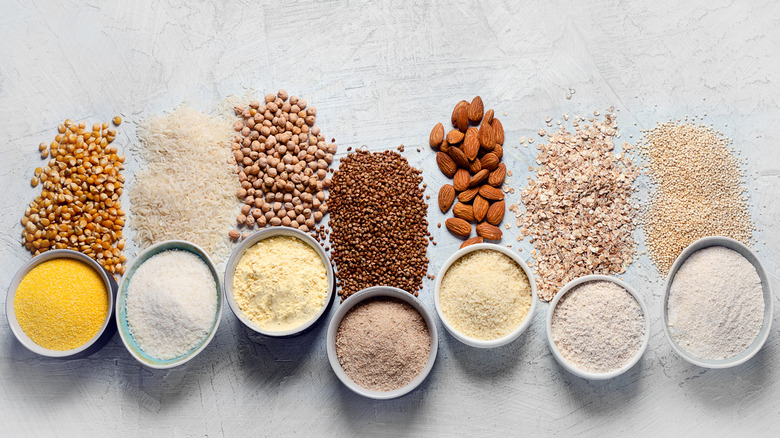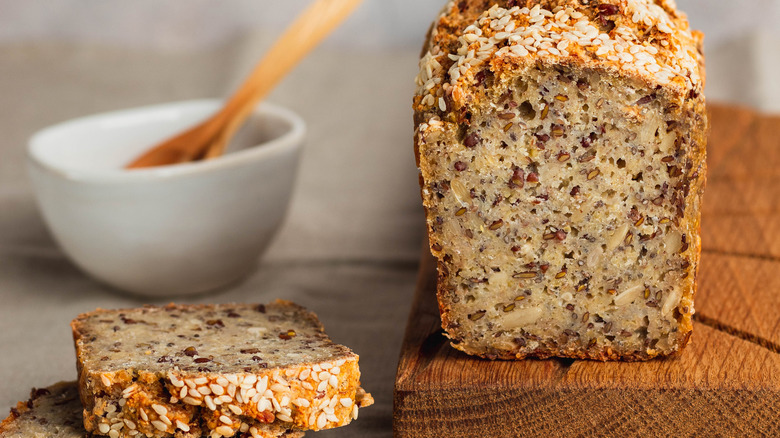The Healthiest Gluten-Free Flour Alternatives
If you've thought that going gluten-free means you can't have delicious bread, pizza crust, or cookies, think again. While it's true that the chemical composition (specifically the gluten content) of all-purpose flour makes dough perfectly stretchy and doughy, know that there are a plethora of gluten-free flours to cook and bake with that serve as healthy alternatives. Just head down the baking aisle of any natural foods store.
When substituting gluten-free flour for all-purpose flour, you'll likely need to combine several flours together. This can ensure you're getting a mix of high-protein flours, low-protein flours, and starch, which significantly impacts the taste and texture of your dishes, according to Verywell Fit. To make life simpler, you may wish to select a pre-made mix that contains the proper ratio and blends of each.
Another consideration is the flavor profile. While all-purpose flour has a neutral taste, gluten-free flours like almond flour and coconut flour taste slightly like their whole foods versions: almonds and coconut. This can help enhance a dish or clash with it depending on what you're trying to make. For example, coconut flour may better serve coconut cookies than pizza dough. Suffice it to say, this process may take a little trial and error, but you can undoubtedly find alternative flours to achieve your culinary and health goals.
Health properties of alternative flours
Let's review a few of the most popular and healthy gluten-free flours on the market, starting with almond flour. While this flour is a popular choice for many recipes, it can be denser than wheat flour, which means it's not ideal for making bread. Instead, it works better for cakes, muffins, and cookies, per The Washington Post. And if you do find it fits with your favorite recipe, you can also look forward to the many health benefits, such as providing a rich source of antioxidants, vitamins, and minerals. In particular, it's a good source of magnesium and manganese and contributes to heart health, blood sugar regulation, and digestive health (via WebMD).
If you're looking for the best flour to make bread and pancakes, then buckwheat might be the one to choose, according to Medical News Today. Buckwheat is rich in fiber and niacin and has been linked to lowered blood pressure, healthy blood cholesterol levels, and a lowered risk of heart disease, diabetes, and obesity.
Additionally, sorghum flour is a nice alternative if you are baking cookies, cakes, or bread (via The Spruce Eats). Sorghum contains a great deal of iron and other important micronutrients such as potassium, niacin, and B vitamins. Studies have shown sorghum linked to positive outcomes including reduced levels of inflammation, an ability to protect against cancer, and even weight loss, according to WebMD. With all these healthy alternatives, you won't have to fear missing regular flour any more.


